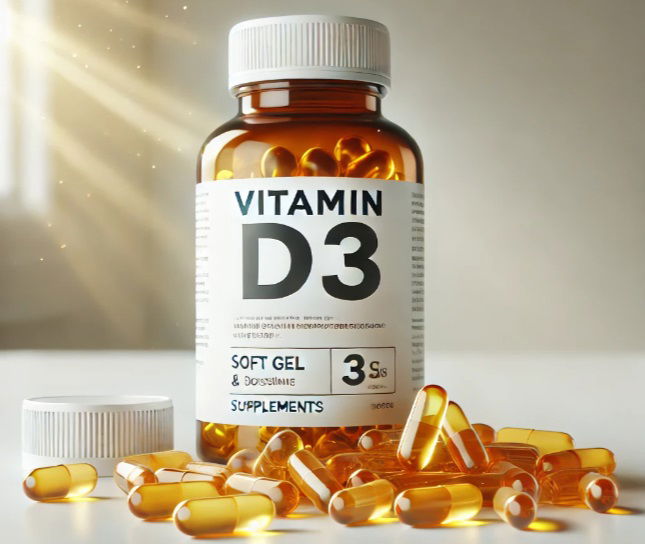
Scientists have developed an innovative method to produce vitamin D3 (VD3), a crucial nutrient for bone health and immune function, with much greater efficiency and purity.
This breakthrough uses specially designed tiny channels, known as microchannels, carved into glass using ultra-fast lasers.
These microchannels are incredibly transparent to ultraviolet (UV) light, which is essential for producing VD3. Because of this, the process now uses light more effectively, leading to higher yields of VD3 and lower production costs.
Traditional methods of making VD3 rely on large, inefficient reactors.
However, the new microfluidic approach solves these problems by allowing for continuous production with a much-improved yield—over 20% higher than previous methods.
This advancement was detailed in the journal Light: Advanced Manufacturing.
“This technology is a significant step forward in producing VD3,” said Ya Cheng, the senior author of the study. “It paves the way for more affordable and accessible VD3 supplements, benefiting both consumers and healthcare systems.”
The microchannels are made from fused silica glass, a material chosen for its excellent UV transparency and resistance to chemicals.
The precise laser carving technique also allows for fine-tuning of the channel design, improving how the materials mix and flow, which boosts the overall efficiency of the process.
In their research, the scientists also showed that VD3 could be produced using a setup of UV LED lights, demonstrating the flexibility of this new method.
This opens up possibilities for future developments, such as creating portable devices that can produce VD3 on the go.
This groundbreaking technique could also be useful beyond VD3 production. Its ability to handle complex chemical reactions under high temperatures and pressure makes it a promising tool for a wide range of applications, including pharmaceutical production and materials science.
In summary, this new method not only makes VD3 production more efficient and cost-effective but also has the potential to revolutionize chemical synthesis in various fields.
If you care about nutrition, please read studies about how Mediterranean diet could protect your brain health, and the best time to take vitamins to prevent heart disease.
For more information about nutrition, please see recent studies that olive oil may help you live longer, and vitamin D could help lower the risk of autoimmune diseases.



